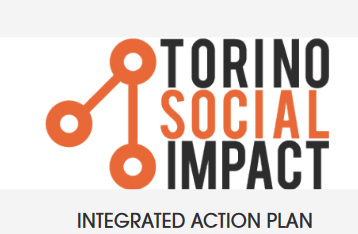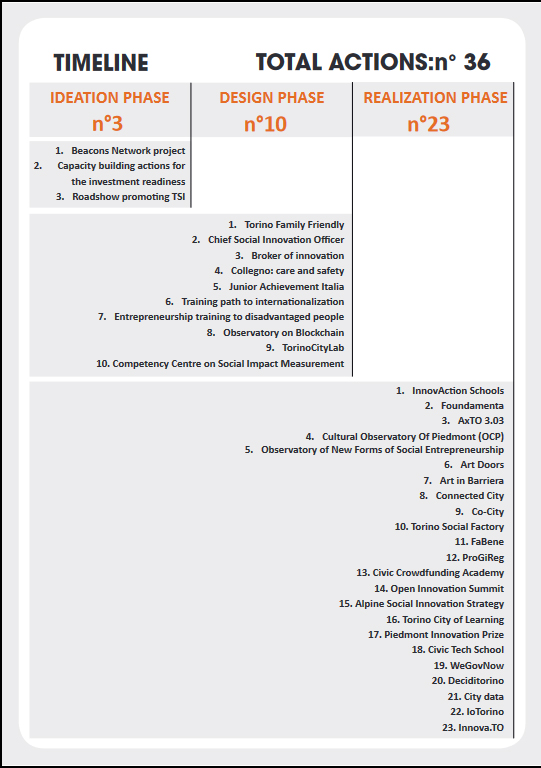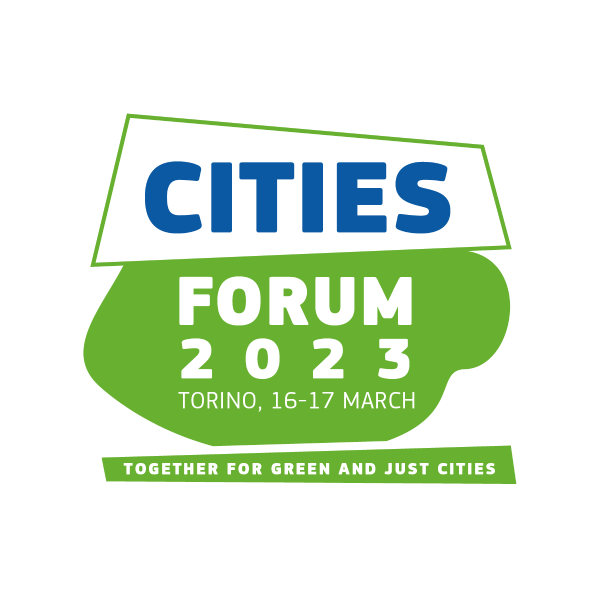During the past days urban practitioners, decision-makers and institutions’ representatives across Europe have been on the road to Torino (IT). After three eventful years, the CITIES FORUM is finally back in its 5th edition. Organised by the European Commission, the event will mark the official launch of the European Urban Initiative and expectations could not be higher among all participants. What some might not be aware though is that Torino has an emblematic journey as to EU territorial cooperation, with an URBACT Action Planning Network as a turning point for the city.
With the current open call for URBACT Networks, the most recent results from the Integrated Action Plans’ study and the CITIES FORUM taking place, there’s no time like the present to remember Torino’s successful story.
First things first, what’s an Integrated Action Plan?
 Co-designed with local residents, interested groups and other concerned stakeholders, an Integrated Action Plan is a local long-term strategy, a mandatory product to all project partners that are involved in an Action Planning Network – municipalities, development agencies and metropolitan authorities, among others. It’s an effective way to experiment solutions, turn ideas into concrete actions and, most importantly, give a voice to a diverse of people and get different municipal departments to work together.
Co-designed with local residents, interested groups and other concerned stakeholders, an Integrated Action Plan is a local long-term strategy, a mandatory product to all project partners that are involved in an Action Planning Network – municipalities, development agencies and metropolitan authorities, among others. It’s an effective way to experiment solutions, turn ideas into concrete actions and, most importantly, give a voice to a diverse of people and get different municipal departments to work together.
Following many rounds of URBACT III Networks (2014 - 2021), roughly 400 Integrated Action Plans were developed throughout the years. A study was commissioned in 2022 to provide useful intelligence on both content and methods used in the plans: identifying trends, pitfalls and good examples, as well as insights into the sustainability and implementation of these documents. This also included how they will be used and resourced and how they link to broader local and regional strategies.
The findings from this study feed the framework of future Action Planning Networks (2023 - 2025), while also shedding light to outstanding cases, as the Torino’s Integrated Action Plan from BoostInno (2015 - 2018) – a network that aimed at boosting social innovation. Read on to see some of the headlines from the study and Torino’s journey.
When Integrated Action Plans trigger real change on the ground
Four years since the delivery and endorsement of its Integrated Action Plan, with the end of BoostInno in 2018, the municipality of Torino had the time to carefully implement a great number of its 37 original actions. The plan was focused on how to harness the potential of social innovation in the city to benefit sustainable urban development, using five key entry points: tools for social innovation; collective actions; engagement and capacity building’ actions; civic technologies; and finance and impact assessment. The city estimates that it has put into place around 80% of actions so far thanks to successfully attracting both national and European funding.
For example, Torino received € 1.5 million from the European Social Fund (ESF) to deliver the ‘Torino Social Factory’ designed to develop the capacity of local social enterprises. A further € 50.000 of ESF was also attracted to deliver the ‘Civic Crowdfunding Academy’, which aimed to support innovative services and projects with high social impact. Such investments ensured the fulfilment of many topics, as capacity-building and collective actions.
Still, impacts need to be understood as a part of a longer process
As in any URBACT Network, cities do not develop or implement their respective Integrated Action Plans “in a vacuum”. Their plans must always – and necessarily – build on existing strategies, activities and available or prospective funding. Some planned activities may be totally new. However, other actions may be modifications or evolutions of existing activities or approaches. Some Integrated Action Plans may be mostly about changing existing approaches to a topic or challenge. For instance, several of the points that were raised during Torino’s experience with BoostInno were also planned under the existing PON Metro Torino programme 2014-2020, which is co-financed by European Structural Funds.
Torino was also successful with an application for an Urban Innovative Action (UIA) project called Co-City which received € 4.1 million of ERDF money to work on new forms of active citizen participation in the collaborative management of urban commons to counteract poverty and socio-spatial polarisation. It is included as one of the actions of the integrated approach presented in the IAP even though the project launched in March 2017 – in parallel with the development of the Integrated Action Plan. Its impact may, therefore, be better understood in terms of the ability to use EU Funds most strategically for long term implementation (up to 10 years), rather than in terms of the amount of funding and budget that is mobilised.

Implementation success is not limited to the Integrated Action Plan’s activities
The implementation of the actions is a complex process that cannot be reduced to a linear exercise of checking whether exact plans have been put into action ‘to the letter’. The study confirmed that Integrated Action Plans should not typically be understood or assessed as investment-ready plans or project management tools. They are, instead, living documents that can feed into the development of new activities which were not explicitly foreseen at the time of concluding the plan.
Following the endorsement of its Integrated Action Plan on social innovation, Torino successfully developed a yet second Urban Innovative Action – this time called To-Nite on the topic of community-based urban security. This project fits within the overall vision of the BoostInno Integrated Action Plan and links to the action to stimulate collective actions and the “installation of networks of sensors colleting environmental variables and developing public solutions in the field of mobility and safety”.
Some partners of ToNite have been active URBACT Local Group members – the co-authors of the Integrated Action Plan. However, it goes much further than the initial plans of the original plan, with strengthened community co-definition of solutions. The € 4.6 million of the European Regional Development Funds (ERDF) mobilised for this project is therefore not about direct implementation of a planned action, but is nevertheless directly related to the impact of the approach and vision defined by the local people who were involved with BoostInno.
If we limit the Integrated Action Plans to the words written at the conclusion of the URBACT Network, then such activities could not be counted as implementation success. However, if we understand it as a living document that continue to evolve, then it seems quite reasonable to understand that these actions are also part of the Action Planning Network’s overall impact.
Action Planning Networks, an open door to countless opportunities
The experience from Torino bears witness of what can be done when an enabling environment and political support are put in place. The design and validation of the Integrated Action Plan was a catalyst element in this process. Besides other URBACT achievements, including participation in different networks, the award of two Good Practices label – one of which, the Innova-TO competition that was envisioned in the plan, and which later became the InnovaTO-r Transfer Network – its first experience with the Urban Innovative Actions, Co-City, has turned into an URBACT pilot: the CO4CITIES Transfer Mechanism, an attempt to share Torino’s secret recipe with three other cities.
Clearly, the journey from this city is far from over and we look forward to see what comes next. The open call for Action Planning Networks could be the beginning of a new chapter for Torino, but also a starting point for your own city.

Are you in the #CitiesForum? Be sure to visit our team in the URBACT stand! If you could not come to Torino this time around, you can still follow the live-streamed sessions. Otherwise, you can always read the studies and content on the Integrated Action Plans.



